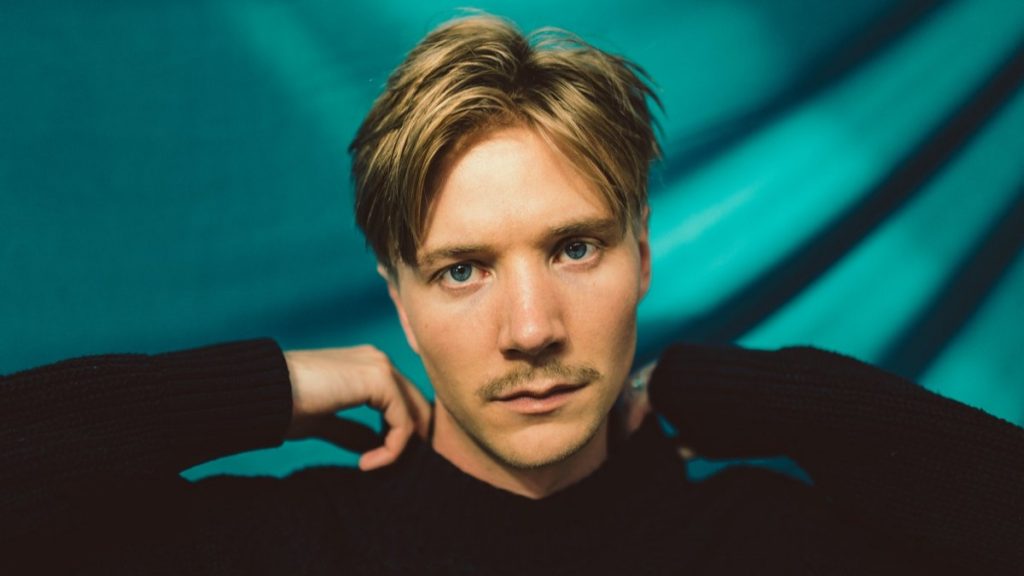Swedish producer Kasbo (Carl Garsbo) broke into the scene at a time when alternative electronic music with an EDM influence was at its peak. His unique brand of future bass was characterized by lush, bright soundscapes infused with an emotive depth and an indie electronic aesthetic. This has earned him notoriety within the electronic scene, millions of streams, global festival slots, and he is a core artist on ODESZA’s imprint Foreign Family. The vastly different sonic eras of Kasbo can certainly be heard within his two previous albums Places We Don’t Know and The Making of Paracosm.
This year, we’re welcome to yet another era of Kasbo as he has undergone a personal and artistic evolution – and this is evident on the latest album The Learning of Urgency. Through a major shift in perspective on his work ethic and mental health, Kasbo took his time over four years to write the album, which is a statement against the “rise and grind” mentality of today that plagues modern society. Throughout this interview, Kasbo talks to us about the story behind The Learning of Urgency, the shift in his sound, and a lot more!
What initially drew you to the dream of becoming a full-time artist when you were younger? Looking back, would you say that things turned out as you had imagined?
I'm not really sure. I think I just always thought it looked so cool to tour the world and play music. I think if I ever had a dream of becoming an artist, it was in a band with my friends, traveling around the world with the people I love, and doing what I love. Other than that, I don't necessarily think it was ever this big grand dream. I just knew I loved making music more than anything else in the world, and I wanted to do anything to keep doing that as much as possible.
Now, I get to make music every day, which is incredible and like I'd imagined it. The main difference is that I'm not touring as a band with my friends but as a DJ myself instead.
Stay up to date.
New music and exclusive updates in your inbox weekly.
Throughout your decade-long journey, you’ve had many accomplishments. You’ve amassed millions of streams, remixed for some of the biggest artists in the world, and also toured a range of different countries. However, what is one personal milestone or breakthrough you feel is yet to be reached?
I think one thing I've had as a bucket list moment is headlining Red Rocks.
Lately, your sound has been leaning more towards melodic house and similar styles, and I'm curious to know what influenced this shift in your music?
During the pandemic, I started getting into DJing a lot, which shifted my taste in music; it was a lot more club-centred and house-leaning. During my day-to-day life, I listen to a lot of ambient and slow drumless music with big soundscapes, and I think the meshing of those two styles just turned out to be that melodic house lane. This style feels the most true to myself that I've felt in years.
From what we know, your upcoming album The Learning of Urgency is shaping up to be your most personal album to date. What made you feel like the timing was right to release such a deeply personal body of work, and how come it took four years to make?
I don't necessarily think it's the most personal album to date. I feel like I always tend to be a bit personal with my album themes haha. I think it's always just a culmination of where my head has been during the time of writing it, so it's not really me feeling like the timing is right or anything. It’s more so just me expressing what I've been feeling.
After my last album, I just entered this big state of confusion about where to take my music. It was around the pandemic as well, and dance music was at a really weird spot. This was combined with the fact that my musical taste was rapidly shifting, and it felt difficult to find that middle ground of something that still felt "Kasbo" but also was true to what I was feeling excited and inspired by. So, for a lot of those four years, I was figuring out that direction. Once I did that, the album came together really quickly.
A few years ago, you experienced a rare, stress-affiliated hearing loss issue that almost halted your career. How did you bounce back from this? And could you describe what it was like finding flow again and learning to create at the level you're accustomed to?
It was a lot about finding my peace with it, which in turn, solved my hearing issues for the most part. At a certain point, I thought I would have to say goodbye to a career in music, which was terrifying. Now that I have that ability again, I try to never take it for granted.

How do the recurring angelic figures floating underwater in the artwork relate to the themes that you tackle on the album?
The album is about trying to find that inner calm in a world that feels ever-accelerating. Our main priorities as a society, I feel, are productivity and accomplishment, thinking that will lead to a feeling of self-fulfillment and happiness when, in fact, it can be the culprit in reaching that feeling of unhappiness. I guess I just realized that sometimes slowing down can be the key to being content and happy, and for me, the world underwater was the most realistic way of depicting that slowing of time.
As a producer, how do you effectively communicate personal and difficult subjects without the use of language in order to relate with listeners?
It's a lot about sound selection and pace to me. I feel like you can accomplish a lot by just putting a person in a space, which I feel can almost be easier with sounds and song structure rather than melody and lyrics.
From the singles that are out, "Resenären" definitely stands out as one of the most immersive experiences. Given its different sound, what was it about your creative process that you altered to make such a distinctive, sensational track?
I just really wanted to put an emphasis on a club track that takes you on that journey. A track that takes its time to make its point and has these very dramatic moments. I rarely create with a dancefloor or club in mind, but I definitely imagined what I would want to play at a festival or a headline show for this one.
What was the most challenging part about making The Learning of Urgency and how did you overcome that?
I think the most challenging part was creating for myself. As an artist, I think it's hard not to think about the audience or how something will be received, which can ultimately harm the music in and of itself. I think that for this album, I felt it was important that I did exactly what I wanted to do and made an album that I wanted to hear. Being a musician and artist can be very taxing, but ultimately, I do it because I love expressing myself in music. So, I guess I just realized that for this career to be worth it, I need to be doing just that: expressing myself and not doing what I think other people want to hear from me.
How was the process of working with featured artists like when the themes revolved around personal struggles and triumph?
It was great. Most of the people I worked with are close friends. The overbearing theme of feeling like you're trailing behind a world that's moving faster and faster and trying to find your calm feels fairly universal and something they all could relate to, so it felt very natural!
What do you wish people would pay closer attention to and zoom in on when they dive into The Learning of Urgency?
I'd love for people to maybe listen a bit extra carefully to the spoken word on the last track. I feel like it speaks to the theme of the album in a beautiful way. When I heard Dan Whitlam’s spoken word, I think it really clicked for me how out of breath I was, caught up in this need of always doing more. Hopefully, it can help someone else with that realization.
After the making of this album, was there any particular realization you learned about yourself?
I learned that, for me, there's no pot of gold at the end of the rainbow when chasing accomplishment.








